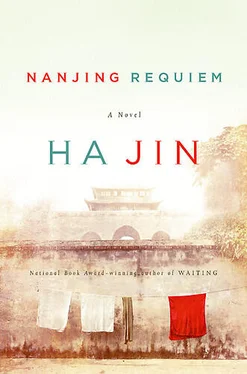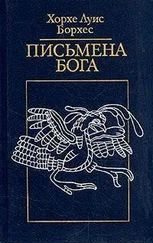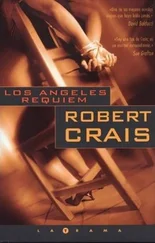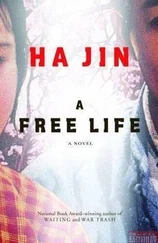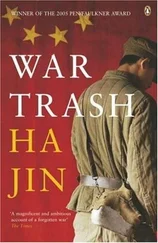“When you have an opportunity, do come back to see us. The gate of Jinling will always be open to you.” She had to stop because a rush of emotion choked her.
I stepped forward and cried to them, “Now, you all go home to be loving mothers, devoted wives, and filial daughters. Good-bye, everyone, God bless you all.”
As the crowd was dissolving, Minnie grabbed hold of Rulian, whose face was filmed with perspiration. “Why did you let them do that?” Minnie asked her.
“They made me lead them — they wanted to express their gratitude. What else could I do?”
Holly and I went up to them. “Minnie, it’s over,” Holly said. “You handled it perfectly.”
“They made me uncomfortable, as though they turned me into an idol.”
“Come now,” I spoke up, “we all know they love and respect you.”
“But they should show that kind of love and respect only to God,” Minnie said thoughtfully.
“God’s spirit is embodied in humans,” I continued sincerely.
Holly giggled and slapped Minnie on the shoulder, saying, “Our Goddess of Mercy, what a wonderful title. I wouldn’t mind if they dubbed me that. I’d do my darnedest to live up to it.”
Minnie reached out and gave Holly’s ear a tweak. “Ouch!” Holly let out.
“I hate to see them confuse humanity with divinity,” Minnie said. “It’s not right to be called a goddess while I’m doing mission work.”
The previous week Miss Lou had told us that a woman of eighty-seven in the neighborhood, blind as a bat, would at night sit in the lotus pose and pray to Minnie’s photograph, wishing the American principal a hundred years of life so that she could help and protect more poor women and girls. Many Chinese cannot think of divinity divorced from humanity. Indeed, for them anyone could grow good and better and eventually into a god or goddess.
THE NEWS that thirty-four men and boys had been released from the Model Prison was carried by two papers run by the Autonomous City Government, which hoped to show the Chinese that it was making every effort to protect the citizens. Most of the reunited families were about to head back for the countryside, where their homes used to be. We thought about throwing a tea party for them, but then the anxious faces of those women, more than six hundred of them, whose menfolk remained unaccounted for, got the best of us.
The next morning Sufen and her son came to say good-bye. The scrawny boy, short for fifteen, had a man’s face, which was sallow and scabbed in places, a little knot of wrinkles on his forehead. He just repeated what his mother told him to say—“Thank you, Principal Vautrin, for saving me.” He seemed still in shock, unable to speak a full sentence on his own. His eyes were dull and kept blinking as if he couldn’t see clearly. Even when others around him smiled or laughed, his face showed no response. He wore a white collarless shirt that had short sleeves and several holes, and long mud-colored shorts, which displayed his calves, thin like broomsticks. Seeing his big toes peeking out of his tattered canvas sneakers, Minnie gave him a pair of new cloth shoes that looked like they would fit his feet. He took them with both hands and, on his mother’s instructions, mumbled, “Thank you very much.” I felt sad for him, knowing it would take a long time for him to recuperate. Mother and son were going back to their home village near Danyang, though Sufen wasn’t sure if their house was still there.
By early June all the refugee camps had been closed, and some foreigners were leaving. John Magee was returning to the United States by way of Shanghai after twenty-eight years of service in China. His Nanjing International Red Cross Committee had been dissolved months earlier, and most of its members were gone. The reverend was anxious to leave because the Japanese military hated him, particularly for the hospital he had managed — a number of foreign reporters had visited it and published photos of victims of the war atrocities in newspapers in the West. What the authorities didn’t know was that Magee owned a 16mm movie camera and had shot some footage of the Japanese atrocities last December. The eight reels of films had been sewn into an overcoat by us and smuggled out of Nanjing by his fellow missionary George Fitch in late February, when he left for the States. Magee would have been detained, even killed, if the Japanese military had known about the films. In early June he left with Mr. Tanaka in the same railroad car, so no police bothered him.
HOLLY TOO WAS LEAVING. She came to say good-bye. I had never suspected that we’d part company so soon. My husband was napping in the inner room while Liya was out with Fanfan. When we sat down, Holly said, “I’ll leave early next week.”
“Why?” I asked in surprise, sipping chrysanthemum tea. “What makes you want to go? Did someone mistreat you?”
“The camp is shut down and I’m no longer needed here.”
“Nonsense, you can teach for us in the fall. We don’t have a music teacher yet, and I’m sure you’re the most qualified person. When the college reopens, they’ll let you continue teaching here.”
“I don’t want to make trouble for Minnie — the ex-president will be mad at her if she finds me here.”
“Even though Mrs. Dennison doesn’t like you, she’s smart enough to see that you’re useful, indispensable, to Jinling. She won’t let her personal feelings interfere with the college’s business. She’ll do anything to make this school stronger. Does Minnie know you’re leaving?”
“I told her last night, and we argued a bit.”
“About what?”
“About how to live in China. Minnie takes Nanjing as her hometown now and can hardly imagine living elsewhere. She loves this city and this college. But for me home can be anyplace and I don’t need a hometown. To be honest, I no longer hate the soldiers who burned my house. I’m leaving for Hankou in four days.”
“You’re crazy! Isn’t a battle about to break out there?”
“That’s why I’m going.” She tilted her head, which glistened with luxuriant ginger hair, and smiled with her mouth widened. Her eyes were shiny and bold.
“You don’t like Nanjing anymore?” I asked.
“After I lost my house, I realized that my life was entwined with the Chinese, whether I like it or not. This is my adopted country and I’ll serve where I’m needed most.”
“I admire your large heart, Holly.”
“The admiration is mutual.”
“Write to me when you have time.” I wanted to say more, but an upsurge of emotion overcame me.
“I will,” she said.
Liya came back with my grandson in her arms, panting a little. I took Fanfan and put him on my lap. He was still sleeping, his lips parted. I told my daughter to cook noodles with leeks for Holly and me. The two of us started to chat again, over a bowl of mulberries.
IN EARLY AUGUST we finally got a letter from our son, Haowen. After reading it, my husband fell silent. His eyes fixed on the table, though his lids were jumping a little. He gave a long sigh.
“What is it, Yaoping?” I asked.
“You don’t need to read this now.” He folded the two sheets and put them back into the envelope.
“Let me see it,” I said. Before he could hide the letter, I snatched it from his hand and began reading.
Haowen informed us that he was in the Japanese army now, garrisoned outside Suzhou, serving in a field hospital as an assistant doctor. He’d left the medical school half a year ago and married a girl in Tokyo. Then the army forced him to join up or his bride and in-laws would suffer, so he had come back to China a month ago.
Читать дальше
